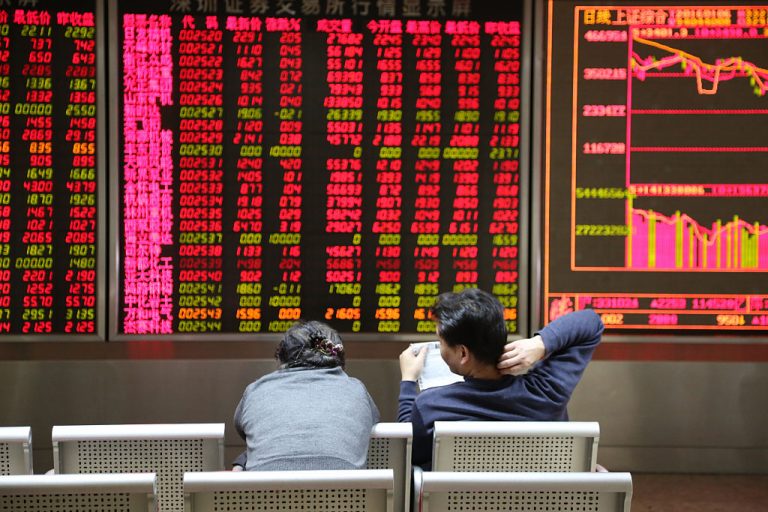In an unusual shift within China’s financial landscape, a significant number of local companies have decided to abandon their initial public offering (IPO) plans for this year.
The upheaval comes as the China Securities Regulatory Commission (CSRC), now under the leadership of new chairman Wu Qing, tightens its grip on share listings and imposes stricter rules to rebuild investor confidence amid declining market indexes.
To date, 47 companies have withdrawn their listing applications from China’s stock exchanges this year — a sharp increase from the 29 withdrawals recorded during the same time last year, according to data released by the stock exchanges. The trend underscores growing hesitancy among firms given China’s increased regulatory scrutiny and a less favorable market environment.
Jumping ship
Heightened regulatory scrutiny spearheaded by the CSRC also includes soliciting feedback on regulatory practices from market participants, imposing fines for fraudulent listing activities, and pledging more rigorous on-site inspections. In a statement made on Feb. 23, a CSRC official emphasized that the commission would levy severe penalties for accounting fraud, signaling a “zero-tolerance approach” to financial misconduct.
“Under high-pressure regulation, the number of IPO withdrawals has reached a new high,” said state-owned securities firm Shenwan Hongyuan in a recent analysis. The statement also reflects a broader sentiment in the market, where regulatory pressures are reshaping the global IPO landscape.
Success
You are now signed up for our newsletter
Success
Check your email to complete sign up
RELATED: Taiwan’s Chipmakers Pivot Towards Japan Amid Global Decoupling Efforts From Chinese Mainland
The shift comes against a backdrop where China’s IPO market has been experiencing a slowdown. After dominating the global IPO market in terms of proceeds, the pace of new share sales in China has decelerated significantly, notes the firm. The slowdown began late last year when regulators introduced phased restrictions on IPOs, aiming to balance investment and financing more effectively.
According to Guotai Junan Securities, in 2023, some 313 companies managed to complete their IPOs in China, raising a total of 356 billion yuan ($49.5 billion). This marks a decline from the 424 IPOs that raised 587 billion yuan in 2022.
Enhanced crackdown
Recent actions taken by the Shenzhen Stock Exchange exemplify this regulatory tightening. Earlier in the month, the exchange terminated the IPO plans of Ningbo Borine Electric Appliance Co and diagnostics firm, Fapon Biotech Inc., after both companies requested to withdraw their applications.
“This means that the regulators’ punishment of fraudulent issuances has been moved to the IPO review stage,” said Shenwan Hongyuan Securities, adding, “A-share IPOs will enter an era where quality is more important than quantity,” the brokerage said in reference to shares listed on the Chinese mainland.
RELATED: Deeper Into Deflation: China’s January Economic Data Shows Worsening ‘Balance Sheet Recession’
Furthermore, the CSRC’s enforcement actions have become more proactive. On Feb. 19, the committee fined Shanghai-based semiconductor company S2C Ltd for “fraudulent activities in its listing application,” despite the firm canceling its IPO plan in July 2022.
As Chinese authorities continue to refine their oversight mechanisms, companies aiming to list must adapt to higher standards of transparency and compliance, notes the CSRC. This adjustment period is expected to redefine the landscape of China’s capital markets — prioritizing the protection of investors and the integrity of the financial system over the sheer volume of new listings.
Flailing economy
China’s current economic landscape is marred by rigid deflationary pressures, a worsening property crisis, and weak domestic demand — all of which are hampering economic activity and investor confidence.
For years, the country’s rapid growth was fueled by a booming housing market — driven in large by population growth and urbanization. But with the real estate industry contributing up to 30 percent of China’s GDP and the majority of household wealth tied up in it, the sector’s downturn has far-reaching implications.
MORE ON THIS: The Collapse of Evergrande: A Symbol of China’s Deepening Property Crisis, Flailing Economy
Government efforts to curb excessive borrowing by developers in 2020, intended to cool down the property bubble, have only accelerated the crisis. Numerous Chinese developers have since defaulted on their debts — turning the industry from a growth driver into an economic drag.
The country’s estate struggles also worsened amid a slow recovery from stringent “zero-COVID” lockdowns and other economic challenges — including record high rates of youth unemployment and financial stress in local governments. Last December saw the steepest decline in new home prices in nearly nine years, with property investment dropping by 9.6 percent in 2023 from the previous year.
Reuters contributed to this report.














